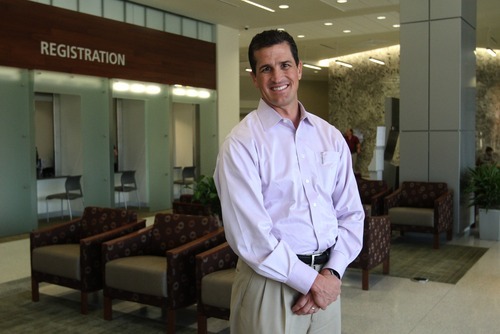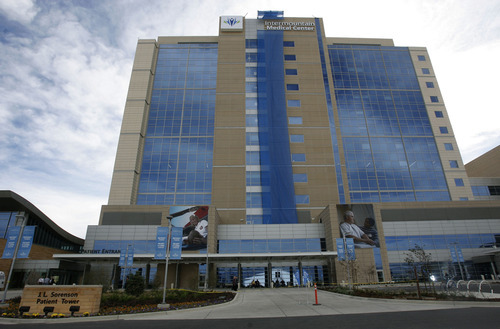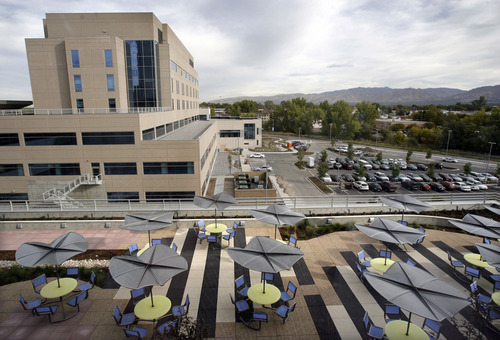This is an archived article that was published on sltrib.com in 2012, and information in the article may be outdated. It is provided only for personal research purposes and may not be reprinted.
PBS will delve into America's health care crisis with the documentary "Money and Medicine" on Tuesday — and Intermountain Medical is the star.
The Murray hospital and Intermountain Healthcare in general come off looking extraordinarily good in an hour that questions the way medicine is practiced in America.
"What's really interesting is when it's in the patient's interest to do one thing and the hospital's interest to do something quite different," said producer/director Roger Weisberg. "To Intermountain's great credit, rather than being driven by the financial incentives, I think they truly are driven by this striving for quality. And that has the result of bring costs down."
"Money and Medicine" (Tuesday, 7 p.m., KUED- Channel 7) features a comparison between Intermountain Medical and the Santa Monica-UCLA Medical Center, where costs can run twice as high. Nationally, yearly health costs per capita are $8,000; in Utah, that number is $3,000; at UCLA, it's $16,000.
Part of that is that Utah has a younger, healthier, population than the nation as a whole. "But also, the way you figured out how to organize and deliver health care here is very smart," said producer/director Roger Weisberg.
Led by chief quality officer Brent James, who features prominently in the documentary, Intermountain has worked to limit procedures and costs.
"I think they truly are driven by this striving for quality," Weisberg said. "And that brings costs down. But sometimes they're penalized for it because our reimbursement system rewards hospitals for doing more."
For example, the national average for cesarian section births is 34 percent; it's 20 percent at Intermountain, compared to 45 percent at UCLA.
"Oh, by the way, we were punished financially," said Brent James, Intermountain's cheif quality officer, who features prominently in the documentary. "We make more money when we do an unplanned C-section."
"Money and Medicine" features medical experts tossing off numbers and comparisons, yet also tackles medical issues through personal stories.
Family members struggle with decisions about whether to extend care for elderly patients who are never going to recover, and Weisberg explores the controversy surrounding mammograms. Research indicates that if you screen 2,000 women for 10 years, half will have false positives. Some will undergo surgery "that could kill them. And we're statistically saving one life," Weisberg said. "Yet if that's your wife — that's a real dilemma."
Then there's prostate cancer screening, which "is the poster child for over-diagnosis," said Gilbert Welch, a professor at Dartmouth Medical School. "There's evidence we've treated about 1.3 million American men for a disease that was never going to bother them."
"Money and Medicine" speaks to major issues and also serves as a primer for patients on how to deal with their doctors.
"I hope to get people thinking about the big picture — policy," Weisberg said. That's because American health care costs are the highest in the world, while the U.S. system ranks 37th overall.
"We're spending at least 50 percent more per capita than then next highest-spending country in the world. And these are the results we're getting. I hope patients come away saying, 'Oh my God, more health care is not necessarily better health care.' "
'Money and Medicine'
The one-hour documentary airs Tuesday, Sept. 25 at 7 p.m. on KUED-Channel 7.







